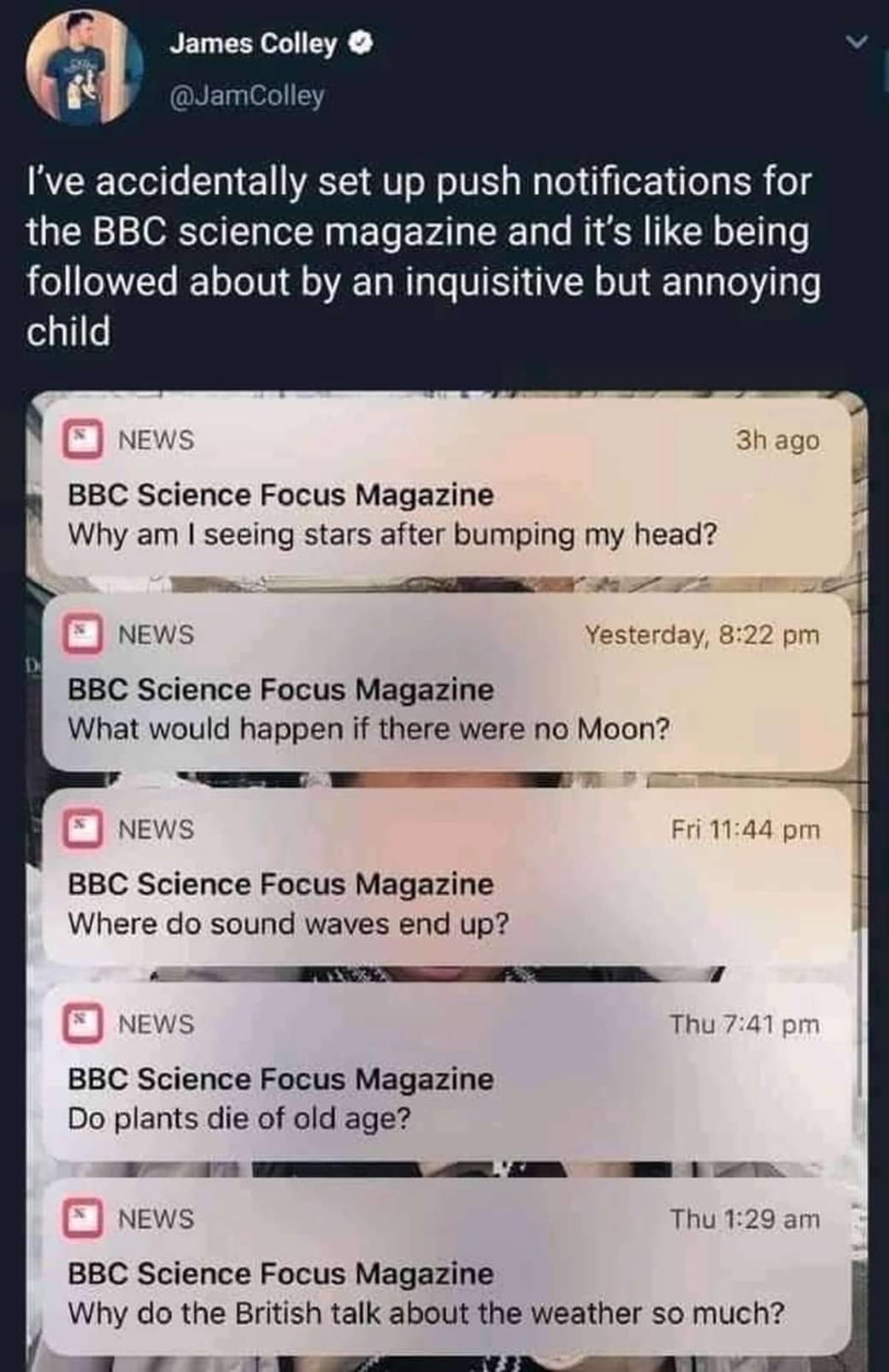this post was submitted on 07 Sep 2024
932 points (99.7% liked)
Science Memes
11581 readers
1098 users here now
Welcome to c/science_memes @ Mander.xyz!
A place for majestic STEMLORD peacocking, as well as memes about the realities of working in a lab.

Rules
- Don't throw mud. Behave like an intellectual and remember the human.
- Keep it rooted (on topic).
- No spam.
- Infographics welcome, get schooled.
This is a science community. We use the Dawkins definition of meme.
Research Committee
Other Mander Communities
Science and Research
Biology and Life Sciences
- [email protected]
- [email protected]
- [email protected]
- [email protected]
- [email protected]
- [email protected]
- [email protected]
- [email protected]
- [email protected]
- [email protected]
- [email protected]
- [email protected]
- [email protected]
- [email protected]
- [email protected]
- [email protected]
- [email protected]
- [email protected]
- [email protected]
- [email protected]
- [email protected]
- [email protected]
- [email protected]
- [email protected]
- !reptiles and [email protected]
Physical Sciences
- [email protected]
- [email protected]
- [email protected]
- [email protected]
- [email protected]
- [email protected]
- [email protected]
- [email protected]
- [email protected]
Humanities and Social Sciences
Practical and Applied Sciences
- !exercise-and [email protected]
- [email protected]
- !self [email protected]
- [email protected]
- [email protected]
- [email protected]
Memes
Miscellaneous
founded 2 years ago
MODERATORS
you are viewing a single comment's thread
view the rest of the comments
view the rest of the comments

Do plants die of old age though? Now that question has been put in my head, I need to know.
Be back in a bit, going down a rabbit hole.
wait until you get to the part about the Ginkgo tree
It is the horseshoe crab of trees
Depends how you look at it. If you keep raising off-shoots from cuttings, you are essentially producing extensions of the very same plant and you can do that indefinitely. Think about it like cloning: an individual plant will eventually die, but it's clone will survive and can still propagate.
Plants are not biologically immortal like some lobsters for example.
Tell me more about these lobsters
Chromosomes are essentially packages of DNA and each end of a chromosome is extended by a protein called telomere, essentially sequences of "junk data" that protect the actual data (the DNA) from degradation or randomly fusing with other chromosomes. When cells split to renew, these telomeres are not fully copied to the new cell and thus shorten with each split. When they get too short, cells cannot split anymore, so there is a natural end to the renewal process (the so-called Hayflick limit).
Lobsters possess an enzyme called telomerase which can repair telomeres and thus their cells can, in theory, divide indefinitely. They will still die naturally tho due to diseases or growing too large to sustain their body size and die of malnutrition, but they don't age the way we do.
That was super interesting, thanks for the response
So... Do they?
Should we send someone after him?
Dammit, this is why you always secure your lifeline before entering the Rabbit Hole
Subscribe to plant facts
You gotta tell us some fun things you learned!
Vine plants are especially weird.
Given the right conditions, some plants can live indefinitely. Others die shortly after seeding.
There's a bristlecone pine tree in the White Mountains of California that is nearly 5000 years old.